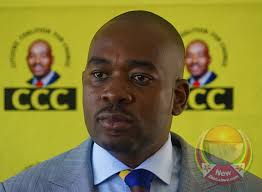Ramaphosa re-election strategy

NDZ and Ramaphosa
Analyzing Ramaphosa’s Campaign Tactics and Messaging for Re-election
Editor: As South Africa gears up for its next general election, all eyes are on President Cyril Ramaphosa and his reelection strategy. After assuming office in 2018, Ramaphosa has faced numerous challenges, including a struggling economy, high unemployment rates, and widespread corruption. Now, as he seeks a second term, it is crucial to analyze his campaign tactics and messaging to understand how he plans to secure another victory.
One of the key elements of Ramaphosa’s reelection strategy is his focus on economic recovery. The president has made it clear that his top priority is to revive the country’s economy and create jobs for the millions of unemployed South Africans. His messaging revolves around the need for investment, both domestic and foreign, to stimulate growth and create sustainable employment opportunities. By emphasizing his commitment to economic recovery, Ramaphosa aims to win over voters who have been hit hard by the economic downturn.
Another crucial aspect of Ramaphosa’s campaign is his stance on corruption. South Africa has been plagued by corruption scandals in recent years, and Ramaphosa has positioned himself as a leader who is committed to rooting out corruption and holding those responsible accountable. His messaging highlights his efforts to clean up government institutions and restore public trust. By addressing the issue of corruption head-on, Ramaphosa hopes to appeal to voters who are tired of the rampant corruption that has plagued the country.
In addition to his policy positions, Ramaphosa’s campaign strategy also includes a strong focus on grassroots mobilization. He has been actively engaging with communities across the country, listening to their concerns, and addressing their needs. By connecting with ordinary South Africans, Ramaphosa aims to build a strong support base and demonstrate that he is a leader who understands the challenges faced by the people. This grassroots approach is crucial in winning over voters who may feel disconnected from the political process.
Furthermore, Ramaphosa’s campaign messaging also emphasizes the importance of unity and reconciliation. South Africa is a diverse nation with a history of racial and social divisions, and Ramaphosa has made it a priority to promote national unity. His messaging focuses on the need for all South Africans to come together and work towards a common goal of building a better future. By emphasizing unity and reconciliation, Ramaphosa hopes to appeal to voters who value inclusivity and social cohesion.
As the election approaches, it is clear that Ramaphosa’s reelection strategy is multifaceted and carefully crafted. His focus on economic recovery, anti-corruption measures, grassroots mobilization, and unity sets him apart from his opponents. By addressing the pressing issues facing the country and connecting with voters on a personal level, Ramaphosa aims to secure another term in office.
However, it is important to note that no campaign strategy is foolproof, and Ramaphosa will face challenges along the way. The opposition parties will undoubtedly scrutinize his record and policies, seeking to highlight any shortcomings. Additionally, voter turnout and public sentiment can be unpredictable factors that can sway the outcome of the election.
In conclusion, analyzing Ramaphosa’s campaign tactics and messaging for reelection provides valuable insights into his strategy. By focusing on economic recovery, anti-corruption measures, grassroots mobilization, and unity, Ramaphosa aims to secure another term in office. However, the ultimate verdict lies with the voters, who will decide whether his vision for South Africa aligns with their aspirations for the future.
The Role of Public Opinion and Voter Perception in Ramaphosa’s Re-election Victory
The Role of Public Opinion and Voter Perception in Ramaphosa’s Reelection Victory
As South Africa gears up for its upcoming presidential election, all eyes are on incumbent President Cyril Ramaphosa and his reelection strategy. One crucial aspect that cannot be overlooked is the role of public opinion and voter perception in determining the outcome of the election. In this blog post, we will delve into how these factors can shape Ramaphosa’s chances of securing another term in office.
Public opinion plays a significant role in any election, and Ramaphosa is well aware of this. He understands that the way he is perceived by the public can make or break his chances of winning. Therefore, he has been working tirelessly to shape a positive image and garner support from the electorate.
One of the key factors influencing public opinion is the perception of a leader’s integrity and trustworthiness. Ramaphosa has made it a priority to address the issue of corruption, which has plagued South Africa for years. By taking a strong stance against corruption and implementing measures to combat it, he has managed to regain the trust of many voters who were disillusioned by the previous administration.
Another crucial aspect of public opinion is the perception of a leader’s ability to address the country’s challenges effectively. Ramaphosa has been proactive in tackling issues such as unemployment, poverty, and inequality. His government has implemented various policies and initiatives aimed at creating jobs, improving education, and reducing poverty levels. By demonstrating his commitment to addressing these pressing issues, Ramaphosa has managed to gain the support of many voters who believe in his ability to bring about positive change.
Furthermore, voter perception is not solely based on a leader’s actions but also on their communication skills. Ramaphosa has proven himself to be an effective communicator, capable of connecting with people from all walks of life. His speeches and public addresses are often well-received, as he speaks directly to the concerns and aspirations of the South African people. This ability to connect with voters on an emotional level has undoubtedly contributed to his popularity and could play a crucial role in his reelection campaign.
In addition to public opinion, voter perception is also influenced by the performance of the ruling party as a whole. The African National Congress (ANC), to which Ramaphosa belongs, has a long history in South African politics. However, it has faced criticism in recent years for its handling of various issues, including corruption and economic stagnation. Ramaphosa’s reelection strategy must, therefore, include efforts to distance himself from the party’s past failures and present himself as a fresh and capable leader who can steer the country in the right direction.
To conclude, public opinion and voter perception will undoubtedly play a significant role in determining the outcome of the upcoming presidential election in South Africa. President Cyril Ramaphosa understands the importance of these factors and has been working diligently to shape a positive image and gain the support of the electorate. By addressing issues such as corruption, unemployment, and inequality, and effectively communicating his plans and vision for the country, Ramaphosa has positioned himself as a strong contender for reelection. However, only time will tell if his efforts will be enough to secure another term in office.







